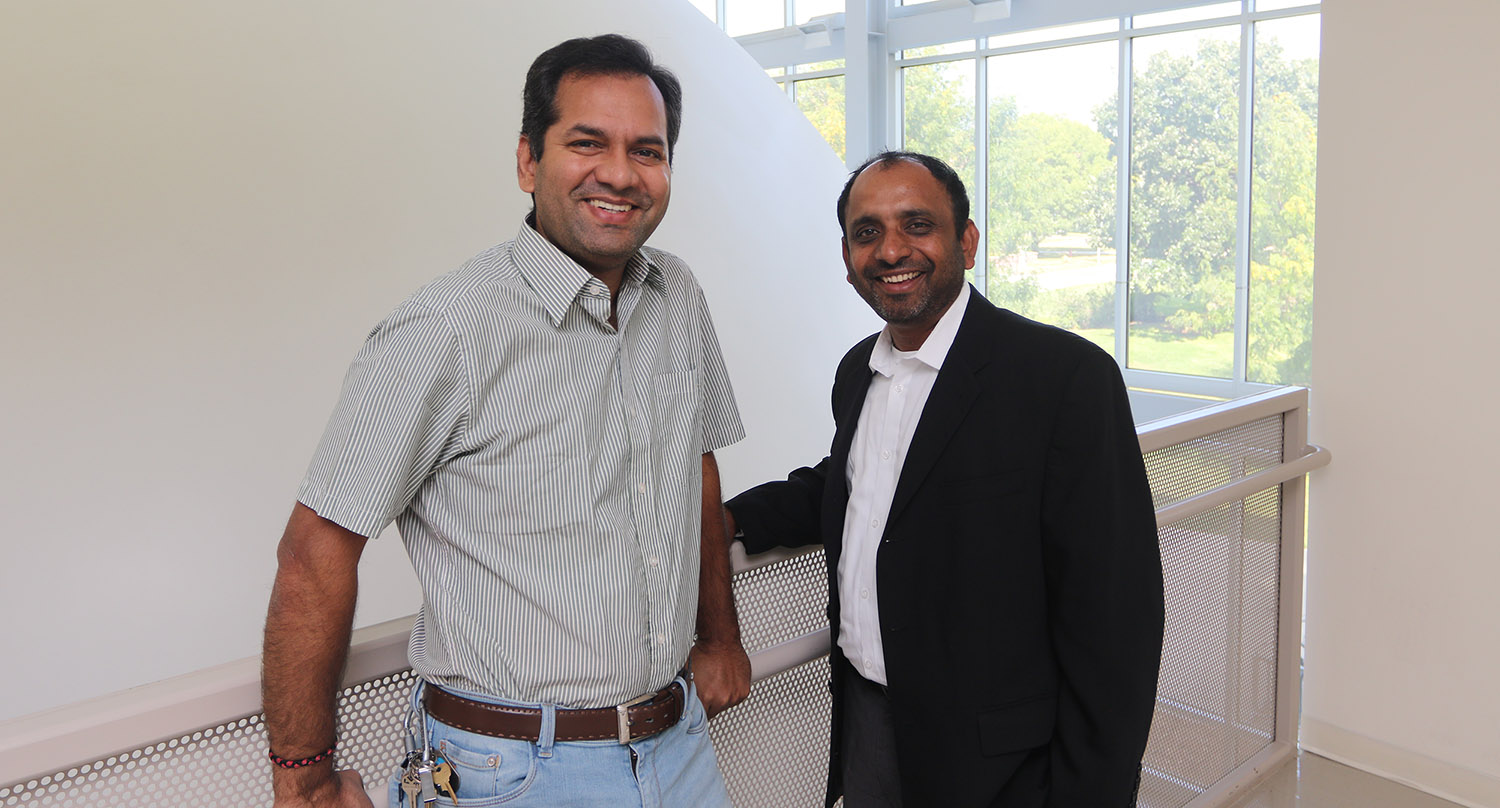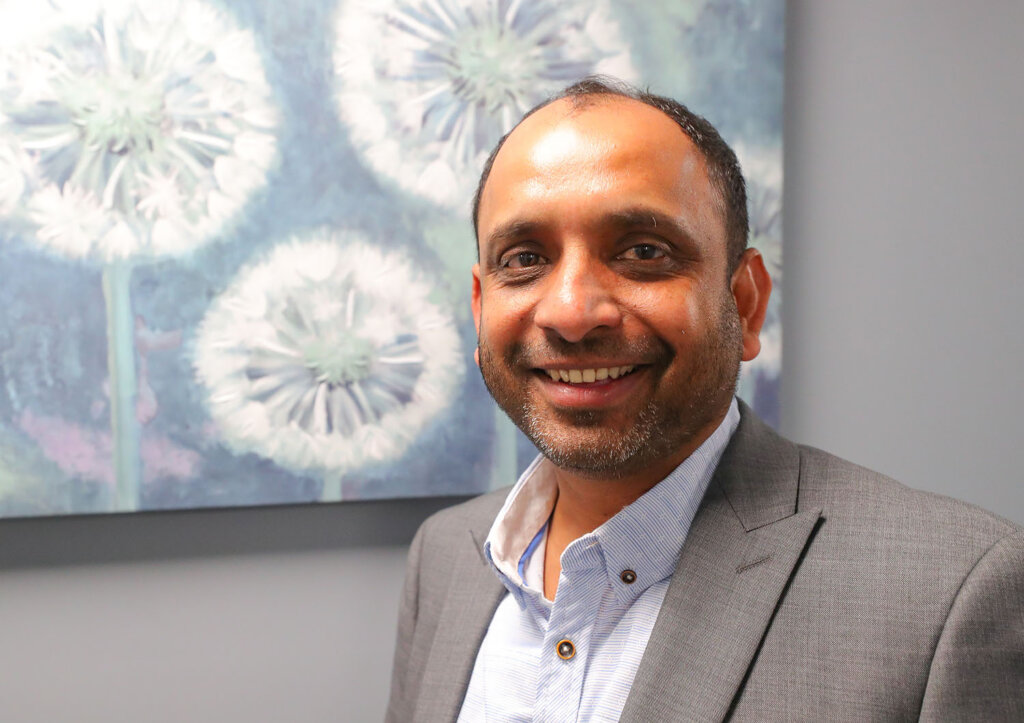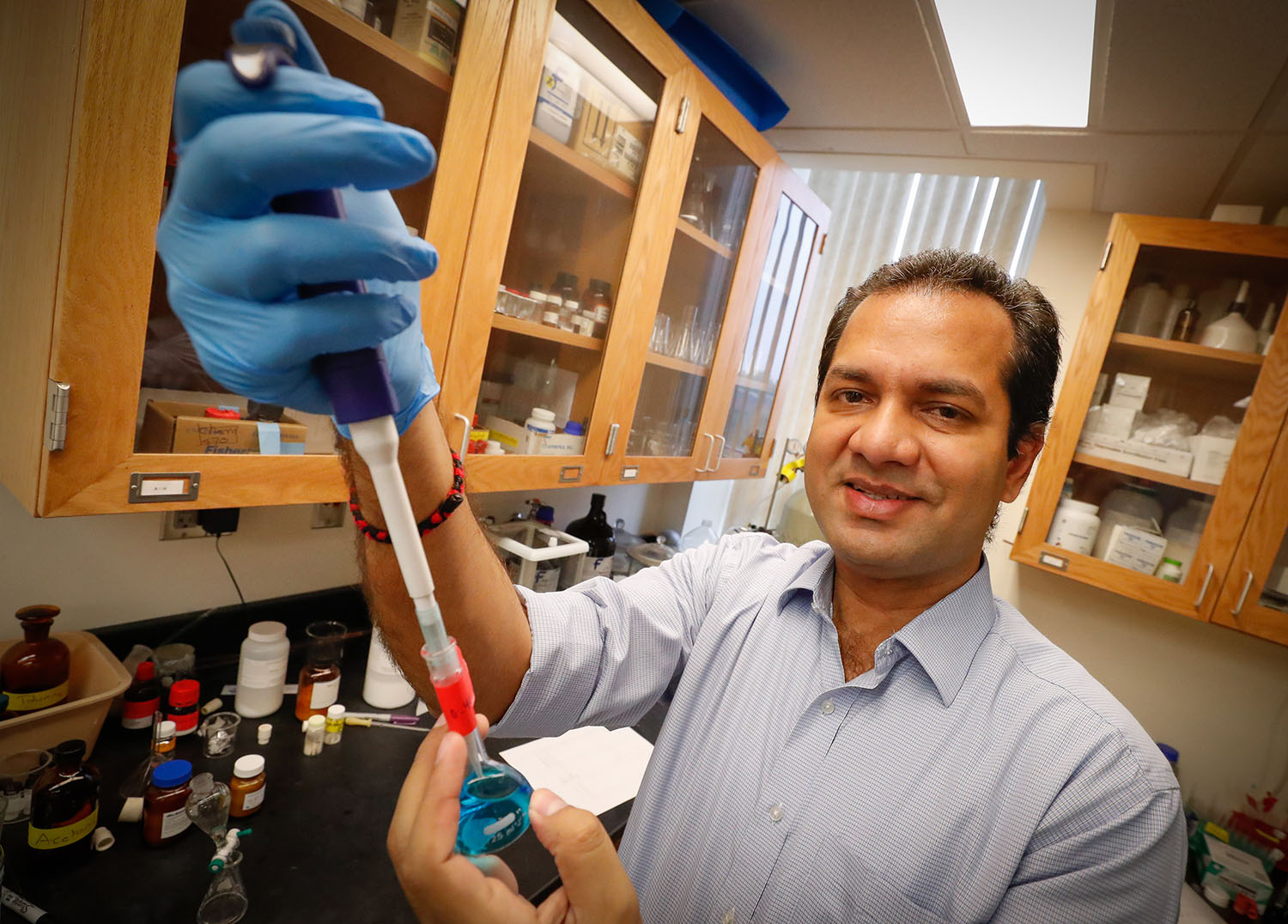
By TYLER ELLYSON
UNK Communications
Imagine wearing a pair of shoes all day, without any air circulation or relief for your feet.
That’s how Rakesh Srivastava describes life with a prosthetic limb.
The medical devices bring countless benefits to millions of people, but they’re not perfect, especially when it comes to hygiene.
Many prosthetic limbs trap heat and perspiration, causing bacteria to grow. This can create an odor and lead to skin irritation, rashes and infection.
“There are a lot of issues that can happen, particularly within the diabetic population,” Srivastava said. “Those patients are very prone to developing sores and infections.”

A prosthesis user who lost his left leg in a childhood accident, Srivastava believes there’s “a huge need” for disinfectants designed specifically for this purpose.
And he plans to be part of the solution.
The University of Nebraska at Kearney graduate is partnering with researchers at his alma mater to develop a disinfectant that’s both effective and safe for human skin. Their goal is to create a product that’s better than anything currently available on the market.
Typically, high-potency disinfectants also have higher chemical reactivity. This means stronger disinfectants are often harmful to humans.
For instance, even hand sanitizer with high alcohol levels can cause skin irritation over time.
This research project aims to eliminate that hazard by utilizing photoactive dyes that generate disinfecting molecules when they’re exposed to light.
“The substances we’re exploring will be very benign when they’re not activated by light,” said Mahesh Pattabiraman, an associate chemistry professor at UNK. “Once there’s light exposure, that’s when the disinfecting properties are brought out. It’s very controllable.”
That makes a product safer for long periods of contact with human skin.
The research team is looking at multiple applications for the disinfectant. It could be used as a topical sanitizer applied directly to the skin or prosthesis, or the photoactive compound could be embedded in a material, such as the liner for a prosthetic device.
Srivastava also sees the potential to create an antibacterial orthotic that can help treat or prevent ulcers and other foot conditions.
“There are various applications,” he said. “This can be used in other industries, as well.”
Eventually, they hope to have a patented product that can be marketed and sold in health care and various other industries.
But their initial focus is on protheses – Srivastava’s area of expertise.
The Hastings resident is president and CEO of Innovative Prosthetics and Orthotics, a business he started in 2006 that provides comprehensive prosthetic, orthotic and durable medical equipment services at clinics in Hastings, Grand Island, Omaha and his home country of India. In 2019, he launched Shabri LLC, an affiliate company that utilizes 3D printing to manufacture custom prosthetic devices and other products.
Srivastava also serves as an adjunct faculty member in the Division of Biomechanics and Research Development at the University of Nebraska at Omaha, where he’s part of the Cyborg Beast research team that developed an affordable and innovative prosthetic hand utilizing 3D printing. He holds a bachelor’s degree in telecommunications management and master’s degree in instructional technology with an emphasis in assistive technology from UNK.
Funded by a grant from the Nebraska Department of Economic Development, the collaborative project between Srivastava and UNK also involves a couple student researchers each semester.
“At UNK, student participation is very important to us,” Pattabiraman said.
After they collect preliminary data, the research team plans to apply for federal grants to extend the project. They hope to have a product ready for the commercial market in three to four years.
